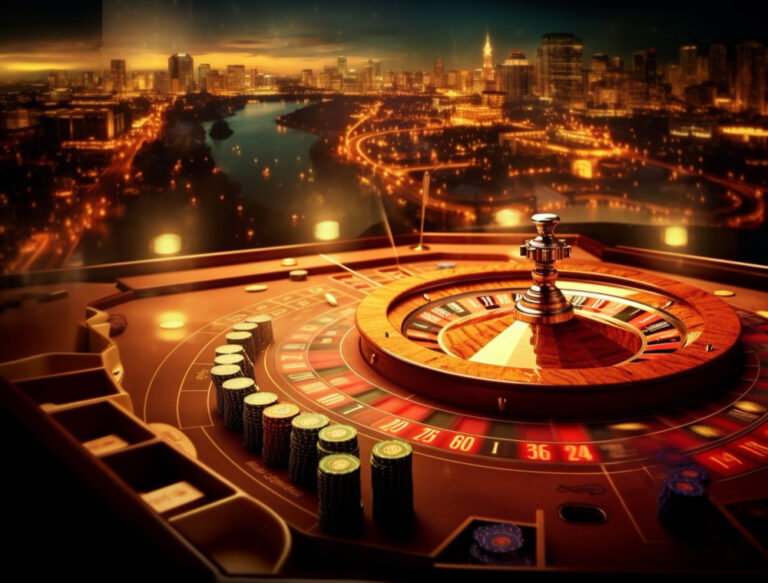The film industry has been fascinated by the aura and mystique of casinos. This has been prevalent in movies for nearly 80 years, and while there’s been a broad and varied way in which they have been depicted, several accurate depictions of casinos have graced the cinema. Online casinos have emerged as a real stumbling block for land-based providers, with many adjusting their platforms to accommodate this market.
Did online casinos change this dynamic?
While the rise of online casinos might have taken some of the market away from land-based casinos, they still have unique selling points. The way they are represented in film and TV is an essential tool that the industry relies on to keep people intrigued. Land-based casinos offer similar types of promotions as online casinos, but many of them cannot compete with the variety and cost-effectiveness of online operators.
For instance, free spins and wagering requirements are prevalent in online and land-based casino marketing. However, over the last few years, the rise of no wagering casino bonuses, which allow people to cash in their bonus amounts and funds without having to play through an exorbitant number of spins, has been a revelation in marketing. The best no wagering casino bonuses have been able to carve out a gap in the market based on this benefit alone.
Land-based and online casinos indeed have different business models and strategies. For those looking for specific, innovative bonus features that eliminate some of the problems that have existed in the world of casino marketing for decades, it’s clear to see why online casinos are eating into so much of the market share of land-based operators.
Early representations of casinos in cinema
Of the earliest mentions of casinos in film, Casablanca stands out for me. It’s undeniably one of the great films of the old Hollywood era. Although it is over 80 years old, it has created new generations of fans. It’s a timeless classic that packs cinemas whenever there’s a screening, and large chunks of the film take place in an underground Casablanca gambling den.
While it’s not technically a casino per se, the representation of the gambling den, the upscale clientele, and the way the table games are depicted are some of the most accurate representations of casino gaming in cinema. For instance, if you have travelled to some of the high-end casinos in Monte Carlo, you’ll know exactly what we are referring to.
James Bond and his casino acumen
If we’re still counting the rise of James Bond and Dr No as old Hollywood, this would obviously get a mention. There’s plenty of debate that the film is on the precipice of the bridge between old Hollywood and the Golden Age — it’s all subjective though.
One thing that isn’t subjective is the suaveness and aura that Connery brought to the role of 007 and the way he provides a level of sophistication and coolness to help propel casinos as a suave film setting. While it’s true that Ian Fleming’s iconic secret agent brought a coolness and suaveness to everything he touched, especially during the Connery era, there’s no disputing that his presence in casinos was unmatched.
While the interior of casinos and the clientele were pretty accurate in many Bond films, the main issue that emerged from the films, was the fact that Bond won so much. While he was meant to win, and he was the main man, it did give off the idea, at times, that the house never wins, which is absolutely not the case.
Casino Royale was a more modern adaptation of Bond’s casino prowess, and while the poker scene was as nail-biting as it was captivating, the lack of realism in the final scene, which we won’t spoil with too many details, was absolutely absurd. If you are a poker fan, and you have seen the final poker scene, you’ll know exactly what we are referring to.
Modern-era films
For the sake of argument, anything from the 1980s onwards we’re going to classify as a modern film. There have been several cinema classics that are strongly influenced by casino settings or the fabric of the casino gaming world and how it has developed over the last 50 years or so.
The highest profile director to take a stab at casino-themed cinema has been Martin Scorsese, who teamed up with his dependable duo of De Niro and Pesci to release the 1995 classic Casino. Although the film was not as highly rated as some of Scorsese’s other legendary flicks, it did a great job in showcasing just how murky and profitable the mob-run casinos of the mid-20th century were.
As ever, De Niro brought a stylishness to the role, which definitely added to the overall aura of the casino, and while casinos have evolved since the release of this classic film, it’s another Hollywood stalwart of the casino genre that has done a great job of depicting the day to day of casinos and how they used to operate.
Final thoughts
Casinos continue to offer a great setting for films looking to add a bit of excitement, glamour and drama to their backdrop. It does need to be done with a bit of class, realism and style though, as it can risk looking a tad gimmicky. Ocean’s Eleven was a great example of this. While it had a complete who’s who of A-listers and one of the biggest ensemble casts of early 21st century cinema, the idea and the way that casinos were depicted were more comical and less believable than the unassuming backdrops we witnessed in films like Casablanca and Casino.
Given that so many casinos feature in film, there’s bound to be titles that represent them better than others. In truth, it’s something that hasn’t really been explored properly in Hollywood. Sure, there’s plenty of films like Croupier, 21 and all the other titles we touched today, but they only really scratch the surface. There hasn’t been a solid casino-themed film that’s hit the cinema for decades in our opinion.
Collectively, they are represented well enough if you go back far enough, but there’s room for another casino film or two on the horizon.


